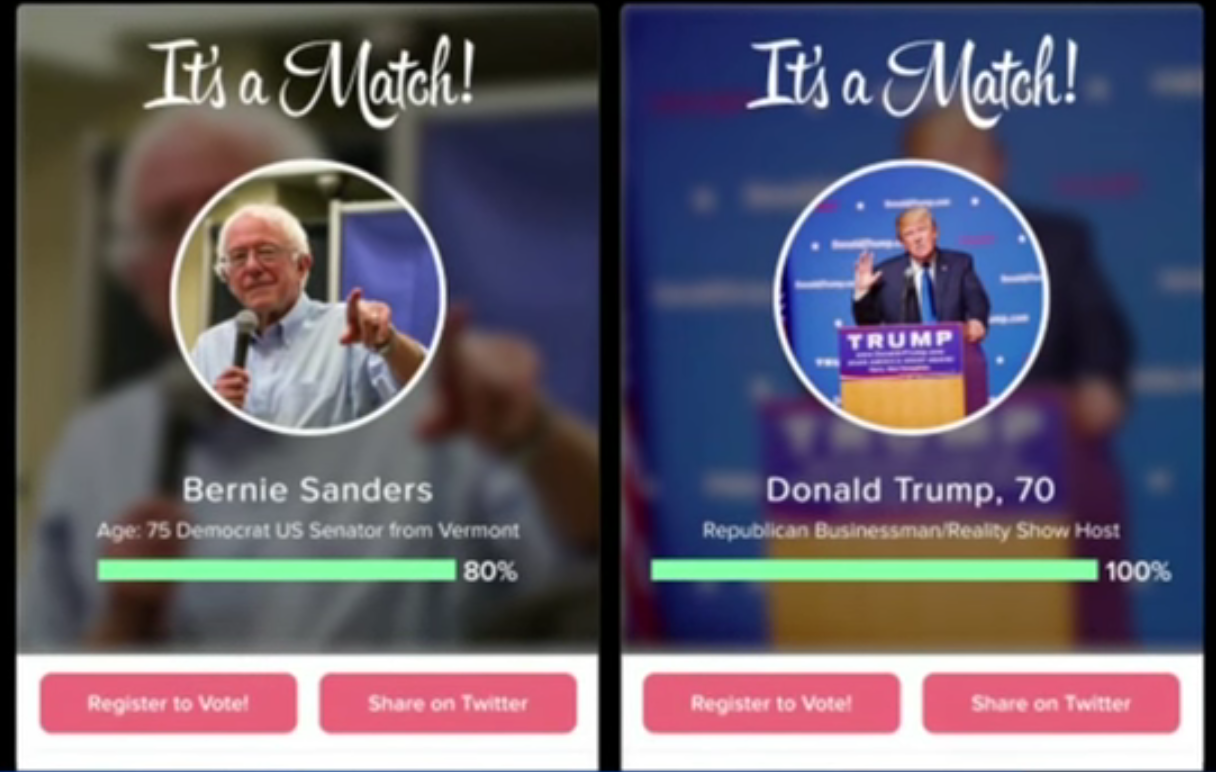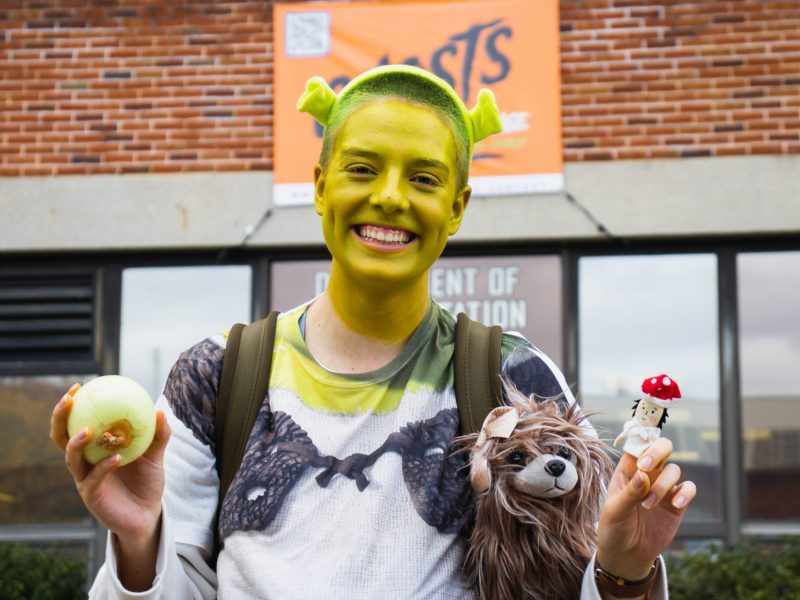While many people – politicians and the general public alike – argue millennials are largely politically disengaged and won’t vote in the upcoming presidential election, our behavior online indicates otherwise.
On Facebook, we click a button to let our friends know we voted in the primaries. On Instagram, we post a picture outside the polls. On Twitter, we live-tweet political debates.
Is it really any surprise that we’ve begun broadcasting our political affiliation and involvement on dating apps, too?
If anything, it makes the most sense for us to post our political views on our dating profiles, certainly before our other social media outlets. It’s important to many millennials that their partners share their political ideologies.
One recent Stanford Graduate School of Business study simulated online dating and found matching political ideology increased its subjects’ interest in a potential match as much as matching education did, and almost as much as a shared religion did. In fact, the study’s subjects rated a match as more physically attractive when he or she shared a political preference, even when the photo stayed the same.
And in actuality, there aren’t many romantic relationships that successfully straddle party lines.
“Maybe 10 to 11 percent of American couples actually have divergent party registrations,” Shanto Iyengar, Stanford University professor of political science and communication, said on a January episode of the NPR podcast Science Friday.
The online dating of yesteryears (or at the very least, more common among older generations) involved lengthy questionnaires for its users to disclose their political preferences, among other things. But user profiles on today’s more popular dating apps consist only of a few carefully chosen photos and space for a brief bio. If party affiliation is such an important aspect of dating, what’s a millennial to do?
In February, Tinder banned two women when they messaged their matches on the app campaigning for Democratic presidential candidate Bernie Sanders, one of whom said she sent the same message to 60 people every day for two weeks, according to Reuters.
On competing dating app Bumble, though, users can put filters on their photos that allow them to identify with their choice political party or candidate.
Is either Tinder or Bumble entirely right in their approach? Probably not.
The Sanders supporters’ behavior on Tinder was definitely extreme. Still, the app shouldn’t be so quick to squash political conversation, a legitimate foundation for a romantic relationship, among its users.
Bumble more openly embraces the importance of political affiliation in dating, but unfortunately the filters it provides make political ideologies the sole aspect of a potential match, despite data that indicates other factors such as race, religion and education all play an important part.
If users consider politics important in their relationship, it’s something they should address like they would any other deal breaker. They should reserve a line in their bio or plan to bring it up in casual conversation with their matches, but it’s better to leave the incessant messaging and photo filters behind.



